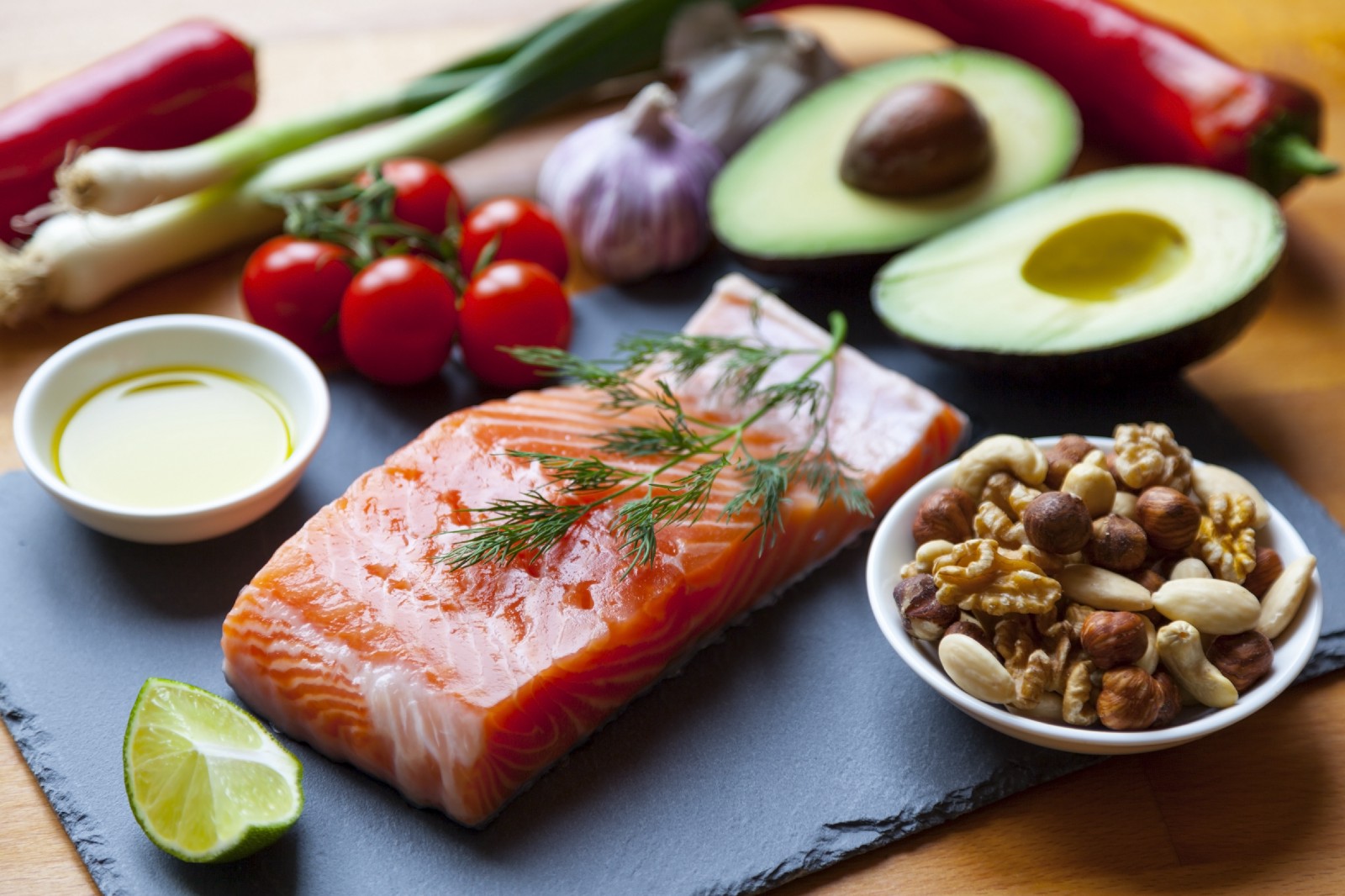
Americans are notoriously unhealthy eaters. The so-called Western diet—one that adores meat, abhors fat, and can’t get enough of processed food — has dominated menus and mealtimes for nearly half a century and has become synonymous with obesity and metabolic dysfunction. Short of swallowing actual poison, it’s hard to imagine a more ruinous approach to eating than the one practiced by many U.S. adults.
If this story has a silver lining, it’s that the dreadful state of the average American’s diet has helped clarify the central role of nutrition in human health. A poor diet like the one popular in the West is strongly associated with an elevated risk for conditions of the gut, organs, joints, brain, and mind — everything from Type 2 diabetes and cancer to rheumatoid arthritis and depression.
“We’ve realized that diet is arguably the most important predictor of long-term health and well-being,” says James O’Keefe, MD, a cardiologist and medical director of the Duboc Cardio Health and Wellness Center at Saint Luke’s Mid America Heart Institute. “Most of the major health problems we deal with in America are connected to the ways we eat.”
If eating the wrong way can contribute to such a diverse range of illnesses, it stands to reason that eating the right way could offer people a measure of protection from most ailments. But what’s the right way? That question lies at the heart of countless studies stretching back several decades. By panning the newest and best of those studies for gold, some experts say we may be closing in on the optimal approach to eating.
“Highly restrictive diets are usually not advised unless there is an underlying medical condition that warrants it.”
An ‘ideal’ diet?
In September, O’Keefe and colleagues published a paper in the Journal of the American College of Cardiology that sought to identify the “ideal” diet for human cardiovascular health. Based on the most comprehensive research to date, his paper makes the case that a pesco-Mediterranean approach paired with elements of intermittent fasting is a strong contender for the healthiest diet science has yet identified.
The diet is essentially a modified Mediterranean plan, which makes sense; O’Keefe and his co-authors highlight research that has found consistent associations between a Mediterranean diet and lower risk for death, coronary heart disease, metabolic syndrome, diabetes, cognitive decline, depression, cancer, and neurodegenerative diseases, including Alzheimer’s disease.
Plant-based foods — vegetables, fruit, legumes, nuts, seeds, and whole grains — form the foundation of the diet. Fatty fish and other types of seafood, along with “unrestricted” helpings of extra-virgin olive oil, round out the plan’s major components. Modest helpings of dairy products, poultry, and eggs are allowed, while red meat should be eaten sparingly or avoided. Low or moderate amounts of alcohol — preferably red wine — are acceptable, but water, coffee, and tea are preferred.
The diet isn’t overly prescriptive when it comes to portion sizes or calorie counts. But it does advocate for a form of intermittent fasting known as time-restricted eating, which calls for all the day’s calories to be consumed within an eight-to-12-hour window. This is a practice that multiple studies have linked to lower food intakes and beneficial metabolic adaptations. “Time-restricted eating is a great way to reduce total calories and also get inflammation and hormones back into healthy ranges,” O’Keefe says.
“Virtually everybody’s health and well-being will improve if they follow a good diet,” he adds. “This diet seems to have the most cumulative scientific evidence supporting it.”
“Choose natural foods, mostly plant-based and fish. Choose whole grains rather than refined, and avoid processed foods, especially salty snacks, processed meats, and sugary beverages.”
You Might Also Like:
The pitfalls of restrictive diets
For those who follow a low-fat diet, a ketogenic diet, or any other diet that rigidly defines what a person can or can’t eat, the approaches highlighted in O’Keefe’s paper may seem unhelpfully general or far too agnostic toward macronutrients. But he and other nutrition researchers say that fewer restrictions are a feature, not a bug, of most healthy diets.
“Highly restrictive diets are usually not advised unless there is an underlying medical condition that warrants it,” says Josiemer Mattei, PhD, MPH, an associate professor of nutrition at the Harvard T.H. Chan School of Public Health. For example, someone who has a metabolic or gut disorder may need to avoid certain foods. But for most people, diets that eliminate whole macronutrient categories or food groups present more risk than reward. Mattei says that restrictive diets also tend to be unsustainable in the long run and in some cases can lead to disordered eating.
Another problem with highly exclusionary diets: What works well for one person may not work for another. “There are many individual factors that could cause differential responses to the same diet,” says Regan Bailey, PhD, MPH, a professor in the Department of Nutrition Science at Purdue University. These include person-to-person genetic variation, age, baseline nutritional status, inflammation levels, and microbiome makeup — to name just a few.
Finally, and maybe most important, experts say that restrictive diets — even ones that provide short-term benefits — may lead to trouble down the road. For example, a certain approach to eating may induce weight loss in the near term, but it could also contribute to the development of a disease or disorder 20 or 30 years later. It’s these sorts of unanticipated or unforeseeable consequences that lead most nutrition experts today to recommend looser, more inclusive approaches to eating.
“This is what I tell my friends and relatives,” Mattei says. “Choose natural foods, mostly plant-based and fish. Choose whole grains rather than refined, and avoid processed foods, especially salty snacks, processed meats, and sugary beverages.” Do that, and you end up with a diet that looks a lot like the pesco-Mediterranean plan backed by O’Keefe’s new paper.
Even if you can’t quite manage to break up with red meat, or for ethical or environmental reasons you adhere to a vegan diet, O’Keefe agrees that eliminating processed meats, refined grains, and sugary foods is one of the most crucial elements of healthy eating. “The biggest problem in the American diet is all the sugar and white flour and processed or fried foods we eat,” he says. “They’re toxic and just highly addictive.”
If you can avoid those foods, or at least restrict them to special occasions, you can feel confident that you’re doing your health a huge favor without exposing yourself to the added exertion or risk that may come packaged with trendier, more extreme approaches to eating.
“If you’re going to put in all this time and effort and willpower, you want to make sure it’s for a diet that’s really going to be a good bet in the long term,” O’Keefe says.
Based on the best nutrition research to date, he says that a diet loaded with plant-based foods, fish, and extra-virgin olive oil — coupled with time-restricted eating — seems like the plan with the most upside.
This article was originally published here





